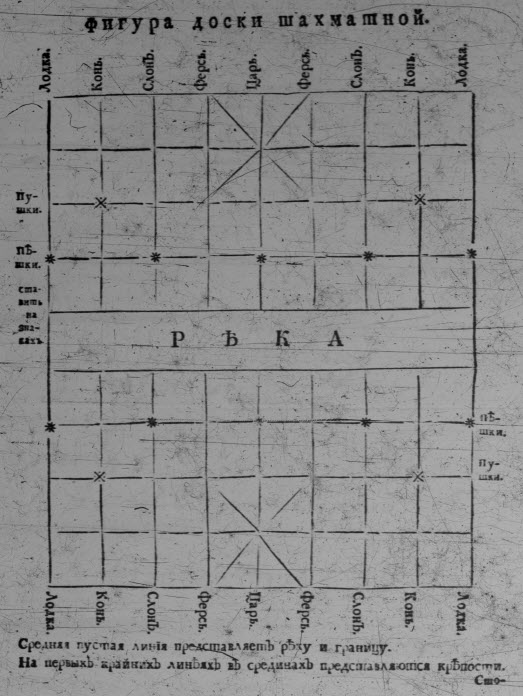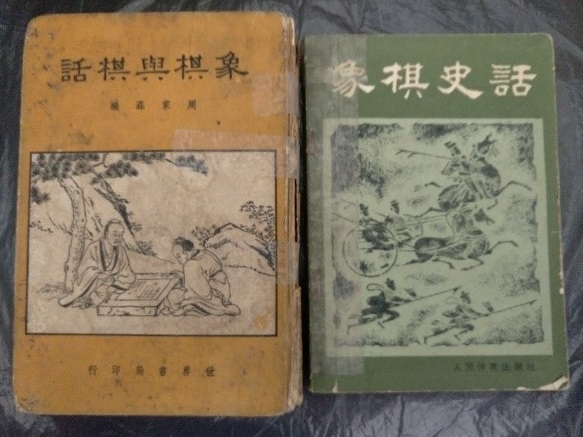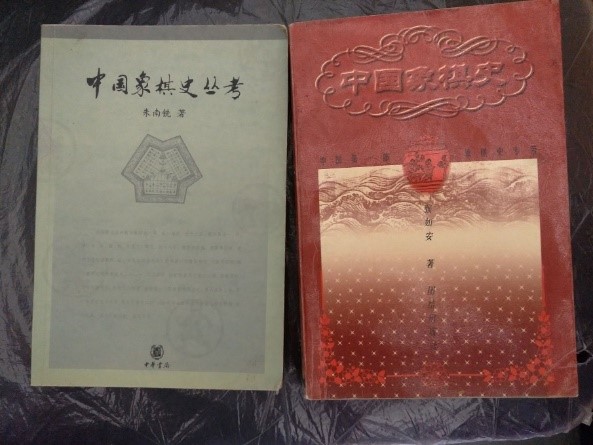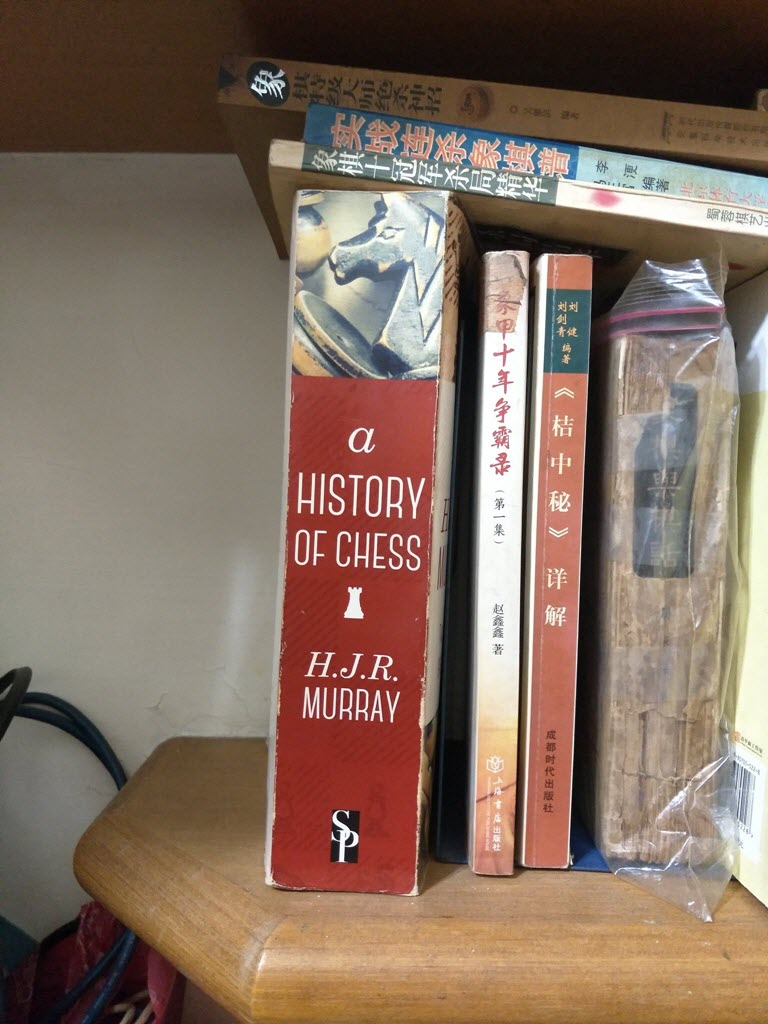Origins of Xiangqi (Chinese Chess) 01: General Overview
The history of Xiangqi is a huge subject. It can be divided into three periods for study:
- the origins of Xiangqi (from pre-history to the Southern Song Dynasty),
- the development of Xiangqi from the Southern Song Dynasty up till 1911 (fall of the Qing Dynasty),
- and the history of modern-day Xiangqi after 1911.
Amongst the three periods of Xiangqi history, most people are interested in the origins of Xiangqi. It is evident from Google searches and queries like:
- How old is Chinese Chess?
- A Brief History of Chinese Chess
- The History of Xiangqi (Chinese Chess, Xiang Qi, Xiangqi…)
- Did Chinese chess precede Western chess? Et cetera
However, if you were to search the topic on search engines like Google and Youtube, the information found can be confusing, intimidating, and sometimes contradictory.
The Origins of Xiangqi is profound because nobody knows when the game was invented, who invented it, where it was invented, and so on. The topic has been made even more complicated because of the two polarizing views on the topic. Chinese scholars believe that Xiangqi was Chinese in origin, while Western scholars have claimed that Xiangqi originated from India. The hypothesis that Xiangqi originated from Chaturanga has been studied in detail over the centuries by scholars from both spheres. Yet, there is still so much more to the origins of Xiangqi (Chinese Chess) that Western historians have not covered.
By this, the Webmaster would refer to the hypotheses that the Chinese have presented but have not been discussed in detail or sparingly brought up. This article would be the first in a series of articles presenting the origins of Xiangqi based on Chinese literature.
This article would be a short introduction that will introduce:
- Commonly Touted Hypotheses
- The Problems encountered when researching the Orgins of Xiangqi
- Chinese References
- Western Literature
- How the Origins of Xiangqi (Chinese Chess) will be presented
Commonly Touted Hypotheses
 The commonly touted or discussed hypotheses can be divided into the following:
The commonly touted or discussed hypotheses can be divided into the following:
- The Ancient, Mythical Origins of Xiangqi: Shennong, Huang Di, and Shun
- King Wu of Zhou and wartime chariots
- Confucius, Mencius, Lie Zi, Zhuang Zi … on Bo Yi
- The Buddha says, ‘No’ to games: Buddhist influence on Xiangqi?
- Mention of the term Xiangqi
- The Chu-Han Contention and Han Xin
- Other games ‘related’ to Xiangqi in the ancient times
- Emperor Wu of Northern Zhou and his Elephant Mantra
- Tombs, Heavenly Battles, Gigantic Tangerines ... Prime Minister Niu Sengru and his Baoying Xiangqi
- The transition period from Baoying Xiangqi to the modern-form of Xiangqi (Southern Song Dynasty)
- Western view: Xiangqi was derived from Chaturanga
Early Western literature on the above hypotheses was limited and often had discrepancies with the original Chinese texts. It is understandable because a strong knowledge of the culture and history of China is required to be able to appreciate the details.
Instead, the Webmaster hopes to introduce the history of Xiangqi in an overview and point directions where interested readers can further pursue the topic. In summary, this series of articles would serve as the background knowledge that any Xiangqi lover should know.
It will give a very general outline of the series of articles that the Webmaster hopes to write and present over time.
The Webmaster has been very interested in the origins of Xiangqi. He has spent over five years going over the History of Xiangqi and re-examining each claim and hypothesis one by one. It would be impossible to present everything that he has researched in one short article. In fact, the Webmaster is collecting and organizing his findings into a book that is already over 600 pages long to date (September 2020).
To the Webmaster’s knowledge, there has not been any major forum or international discussion where scholars representing both sides of the argument have set down together to examine the origins of Xiangqi.
The problems faced when researching the topic
Several problems still plague the Webmaster over the past five years of research into the origins and history of Xiangqi. He has tried to locate all the relevant and original passages from ancient Chinese books and also read the works by the Early Western Scholars. However, the two biggest issues were:
- Scattered information
- Different terms for the same entity
Scattered information
The language barrier is the biggest issue on the topic. First, there are only a handful of Chinese books to date that focus solely on the topic. And these books were published in the 20th Century.
The topic of the history of Xiangqi was indeed discussed in the ancient encyclopedias, and there was much reference to the topic in poems, mantras, book catalogues, et cetera. Unfortunately, the information was scattered and not easily obtainable. It would often take the Webmaster several weeks or months just to find an original short passage from the ancient books or scriptures. To make things more difficult, there were sometimes mistakes produced during scribing. The Webmaster would have to compare different versions of the same text from different encyclopedias and books to ensure that he was no thrown off-course.
Even in the age of the Internet with almighty search engines like Google and Youtube, research into the topic is still so very difficult. Imagine what it would have been like for the early Western scholars, beginning with Thomas Hyde, Sir William Jones, Daines Barrington, Eyles Irwin, Hiram Cox, Duncan Forbes, Karl Himly, et cetera, and of course, H.J.R. Murray. With all due respect, these Western scholars tried to tackle a topic whereby the information they had was presented in a ‘foreign’ language. And save for Eyles Irwin and a handful of other scholars, the vast majority of the early Western scholars had ever set foot on China.
Even if they had material from Chinese sources, which has been scrutinized in their studies, they had limited help from native Chinese speakers or people who knew Chinese in their times to help them interpret and identify. The lucky few who had the help of people knew Chinese includes Thomas Hyde, who was perhaps the luckiest, having elicited help from Shen Fuzong. Eyles Irwin had similar luck with his acquaintance of a young Mandarin called Tinqua, whereby some literature has been identified as a young mandarin by the name of Pan Zhenguan. J.D Vaughan was introduced to the game during his stay in Singapore by the locals. The vast majority of early Western scholars studied the history of Xiangqi based on the works by earlier Western scholars and added opinions of their own.
Different terms for the same entity
There was no unified system of transliteration in the early days when Western scholars studied Xiangqi. In fact, each Western scholar used their translation and pronunciations. Coupled with the fact that there were terms of other languages from other languages, the ‘vocabulary’ was initially very confusing.
Only after the Wades-Giles method of pronunciation came about did the translations become slightly more uniform. Unfortunately, there had already been numerous works before the Wades-Giles translation. There have been several occasions whereby it took the Webmaster weeks before he finally concluded that two different terms actually referred to the same entity.
An example would be the game of Prasaka, which was imported into China from India, and is also known as Shuang Lu, Shuang Liu, Boluosaixi, et cetera in Chinese. The ancient game of Liubo is usually given as Liubo, but there have been other translations like Six Sticks, Liu-po, or simply Bo. Then there is also Chu Pu, which is also known as Shu Pu, Wu Mu, Chaupur, et cetera.
The names used by early Western historians to refer to Chinese books have been especially vexing for the Webmaster, as will be discussed later.
The lack of reference to original Chinese material on the topic, over-dependence on the works of earlier scholars, lack of translators, different translations of the same term, et cetera was prevalent in the works of the early Western scholars. Unfortunately, these were the circumstances that faced the early Western scholars in their quest to determine the origins of Xiangqi, and maybe it could explain why opinions seem to appear more than facts. The Webmaster believes this would be the main reason why the origins of Xiangqi is so debatable.
The Chinese References
Pure treatises devoted to the history of Xiangqi are very few. To date, the following are four books that have discussed the origins of Xiangqi in detail:
a) Zhou Jiasen’s (周家森 zhōu jiā sēn) Xiangqi and Xiangqi Sayings (《象棋与棋语》xiàng qí yǔ qí yǔ ) (the author’s edition was the 3rd edition which was printed in 1947), (1)
b) Li Songfu’s (李松福 lǐ sōng fú) A History of Xiangqi (《象棋史语》), (2)

c) Zhu Nanxian’s (朱南铣 zhū nán xiǎn) A Study of the History of Xiangqi (《中国象棋史丛考》zhōng guó xiàngqí shǐ cóng kǎo) (3), and
d) Zhang Ru-an’s (张如安 zhāng rú ān ) A History of Chinese Chess (《中国象棋史》 zhōng guó xiàng qí shǐ) (4)

These four books remain the most important books on the topic of the origins of Xiangqi. As with the literature in the West, there were also mistakes and discrepancies in these books. The Webmaster will present his findings as time goes by in the relevant topics. These four books remain some of the most prized books he has for Xiangqi. Among the four books, the Webmaster feels that Professor Zhang Ru-an's books is the most comprehensive and detailed book of them all. Unfortunately, the book is out of print and the Webmaster is grateful to a friend in China who donated his copy for me to study.
As mentioned earlier, the vast majority of the information mentioning the origins of Xiangqi in the major history books was scattered, and they would have to be presented in different topics and segments.
Western Literature
Over the years, the Webmaster has also compiled a list of mention of Xiangqi in the Western literature. Most were short mentions of the game with an introduction to the pieces and how to play the game. Even so, there were mistakes in the introduction. Many other discrepancies were noted.
The following is a precious list of books, articles, dissertations that mentioned Xiangqi in Western literature. It is also part of the contents page of the book that the Webmaster is still slogging to finish.
The list is by no means exhaustive. Lady Luck would visit the Webmaster now and then, and there would be new findings. It is an incomplete list that the Webmaster is still organizing.
Note: Professor Joseph’s Needham and Pavle Bidev’s works have not been put in this list as they were discussed in several different portions in the book. David Li’s The Genealogy of Chess has not been included in this list for similar reasons. There are also books and dissertations by modern historians like Peter Banaschak, Jean-Louis Cazaux, Rick Knowlton, et cetera that will be discussed in separate articles.
- 1583 AD - 1610 AD The earliest mention of Xiangqi by Matteo Ricci
- 1613 AD -1636 AD Alvaro Semedo and his travels Imperious de la China
- 1687 AD When Shen Fuzong met Thomas Hyde
- 1719 AD Nicolas Freret read a paper to the French King
- 1721 AD – 1763 AD François Boucher’s depiction of Xiangqi and John Ingram’s preservation engraving
- 1765 AD Robert Lambe mentioned Xiangqi
- 1775 AD, Xiangqi makes its way into neighboring Russia
- 1789 AD Daines Barrington and his claim that International Chess originated from Xiangqi
- 1790 AD Sir William Jones’s great works
- 1793 AD Eyles Irwin, his travels and his Chinese friend
- 1799 AD Hiram Cox and why the elephant cannot cross the river
- 1801 AD James Christie’s creative mentions of Xiangqi
- 1820 AD The Incomparable Game of Chess
- 1820 AD An Easy Introduction to the Game of Chess
- 1838 AD A small paragraph from Standard Inquiry
- 1847 AD N. Bland disputes Thomas Hyde and Sir William Jones
- 1849 AD The Chess-player’s Hand-book
- 1859 AD Willard Fiske mentions Xiangqi briefly
- 1860 AD Duncan Forbes mentioned Xiangqi
- 1866 Augustus Lindley’s description of Xiangqi
- 1868 AD A Passage from The National Quarterly Review
- 1869 AD James Legge supports the hypothesis of King Wu of Zhou
- 1870 AD K. Himly discusses Xiangqi
- 1876 AD Mollendorf on Xiangqi
- 1879 AD JD Vaughan’s Description of Xiangqi in Singapore
- 1885 AD H.F.W Holt and Xiangqi
- 1891 AD Swinton’s Chess for Beginners
- 1891 AD Volpicelli introduces Xiangqi in fine detail
- 1892 AD Falkener discussed Xiangqi in his book
- 1893 AD Henry Bird vouches for Thomas Hyde, William Jones, and Forbes
- 1893 AD W.H Wilkinson published A Manual of Chinese Chess in Shanghai
- 1895 AD Steward Culin and his portrayal of Xiangqi
- 1898 AD AA Macdonell and the Origins and early history of Chess
- 1903 AD Edward Parker’s Short Passage on Xiangqi
- 1913 A.D. What did H.J.R. Murray say about Xiangqi?
- 1953 AD Leon A. Slobodchikoff’s detailed analyses on Co Tuong
- 1973 A.S.M Dickins criticized H.J.R. Murray and suggested that Chess originated in China
- 1975 A.D. Games of the World: How to Make Them, How to Play Them How They Came to Be
- 1976 AD Harry Golombek’s: Chess A History
- 1985 AD Robert Eales’s: Chess The History of a game
The Webmaster has either found the original work over the Internet or bought the relevant books or articles. Google must be credited for their efforts in preserving the ancient texts.
How the origins of Xiangqi will be presented
 The Webmaster intends to write a series of articles introducing the origins of Xiangqi based on the sub-topics listed right above based on his findings.
The Webmaster intends to write a series of articles introducing the origins of Xiangqi based on the sub-topics listed right above based on his findings.
By no means is this article an exhaustive passage on the origins of Xiangqi, nor does the Webmaster pretend that he is an authority. Rather, he views his work as a continuation of the research into the origins of Xiangqi, whereby foundations have been laid by the ancient Chinese and early Western historians. The Webmaster fervently hopes that more research can be done, and more light can be shone on the origins of Xiangqi.
Hopefully, the visitor to the site or reader of the article would be more informed of the rich culture and history behind the game, and not just view Xiangqi as another ‘game.’ That is the main mission of www.xqinenglish.com, to introduce and share with the world the beauty of Xiangqi.
Disclaimer: The connection between Xiangqi and International Chess remains a major point of contention, and the Webmaster will refrain from making speculations. The interested reader is invited to draw whatever conclusions that he might have.
For interested readers who want to read material in English, the following is a list of books that can be bought on Amazon. The link would send you to your nearest Amazon outlet if you do not live in the US.
A History of Chess by HJR Murray. Classic. Collector's item.
https://www.amazon.com/History-Chess-Original-1913/dp/163220293X/ref=as_li_ss_tl?keywords=A+History+of+Chess&qid=1600918061&sr=8-2&linkCode=ll1&tag=xqinenglish-20&linkId=f63d8b4b2ac58a45759951759783a1c6&language=en_US
A World of Chess by Jean-Louis Cazaux and Rick Knowlton (highly recommended by Webmaster). Perhaps the most unbiased and factful book to date on the origins of International Chess, Xiangqi and other games.
https://www.amazon.com/World-Chess-Development-Variations-Civilizations/dp/0786494271/ref=as_li_ss_tl?dchild=1&keywords=A+World+of+Chess&qid=1600918187&sr=8-1&linkCode=ll1&tag=xqinenglish-20&linkId=f2c8abb75ddd2c9be976d851da26e3d6&language=en_US
Chess The History of a Game by Richard Eales. Short introduction to Xiangqi.
Chinese Chess by Z. Volpicelli. A very old article that contains one of the earliest and comprehensive introduction to the game. The Webmaster considers it to be a collector's item. There are one or two missing pages though. Generally speaking, the Webmaster would rate it a 4.8 star.
The Immortal Game: A History of Chess by David Shenk. Contains nice bits of information about Xiangqi and mentions the magic squares, a topic that was seldom or never touched by other historians. Very smooth and good read.
DISCLAIMER: This webpage contains products with affiliate links, which means that if you click on one of the product links, xqinenglish.com will receive a small commission. You will not incur any extra cost when buying from an affiliate link.
References
1. 周, 家森. 象棋与棋话 第三版. s.l. : 世界书局印行, 1947, 民国36年. No ISBN.
2. 李, 松福. 象棋史话. 北京 : 新华书店北京发行所, 1981. 7015.1939.
3. 朱, 南铣. 中国象棋史丛考. 北京 : 中华书局, 2003. 7-101-03704-0.
4. 张, 如安. 中国象棋史. 北京 : 团结出版社, 1998. 7-80130-170-6.
5. Banaschak, Peter. FACTS ON THE ORIGIN OF CHINESE CHESS (XIANGQI 象棋). http://www.banaschak.net/. [Online] No date given. [Cited: Mar 15, 2020.]
6. Cazaux, Jean-Louis; Knowlton, Rick;. A World of Chess: its development and variations through centuries and civilizations. Jefferson, North Carolina : McFarland, 2017. p. 398. 978-0-7864-9427-9.
